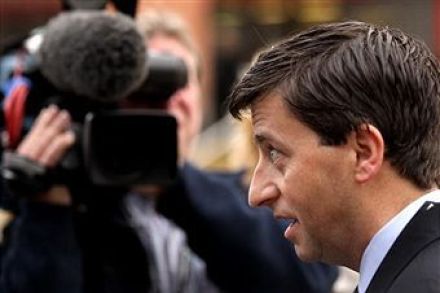Reading the Tea Party
Copyright BBC Tea Party America with Andrew Neil, Renegade Pictures for the BBC This Tuesday we will find out the electoral strength of the Tea Party, the insurgent political movement that has already toppled several favourites of the Republican Establishment. From this side of the Atlantic, it has been hard to get a handle on the Tea Party. Does it represent a right turn in US politics or is it just a rag-tag group whose policies and candidates are just too extreme to be electable? To answer this question, Andrew Neil headed to the States this summer; travelling to the states where the Tea Party has made the most impact.















